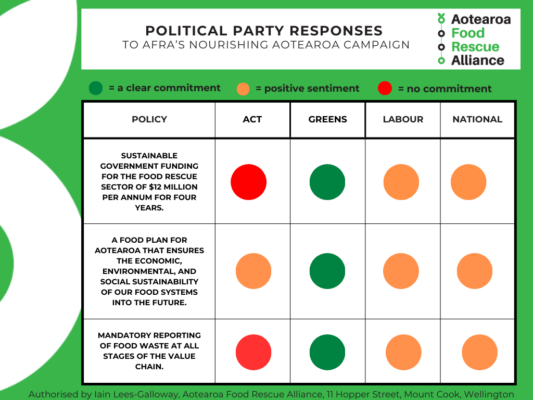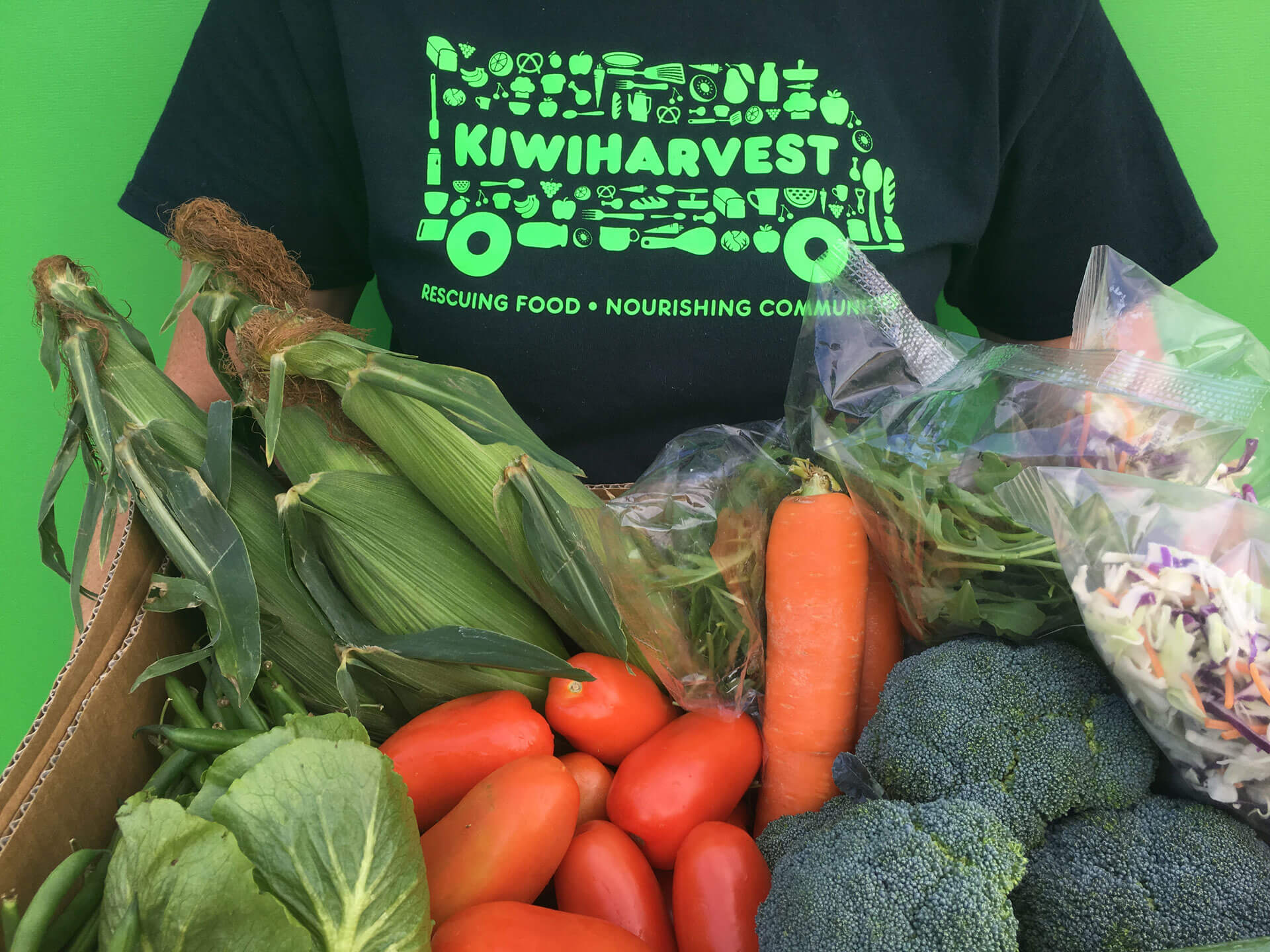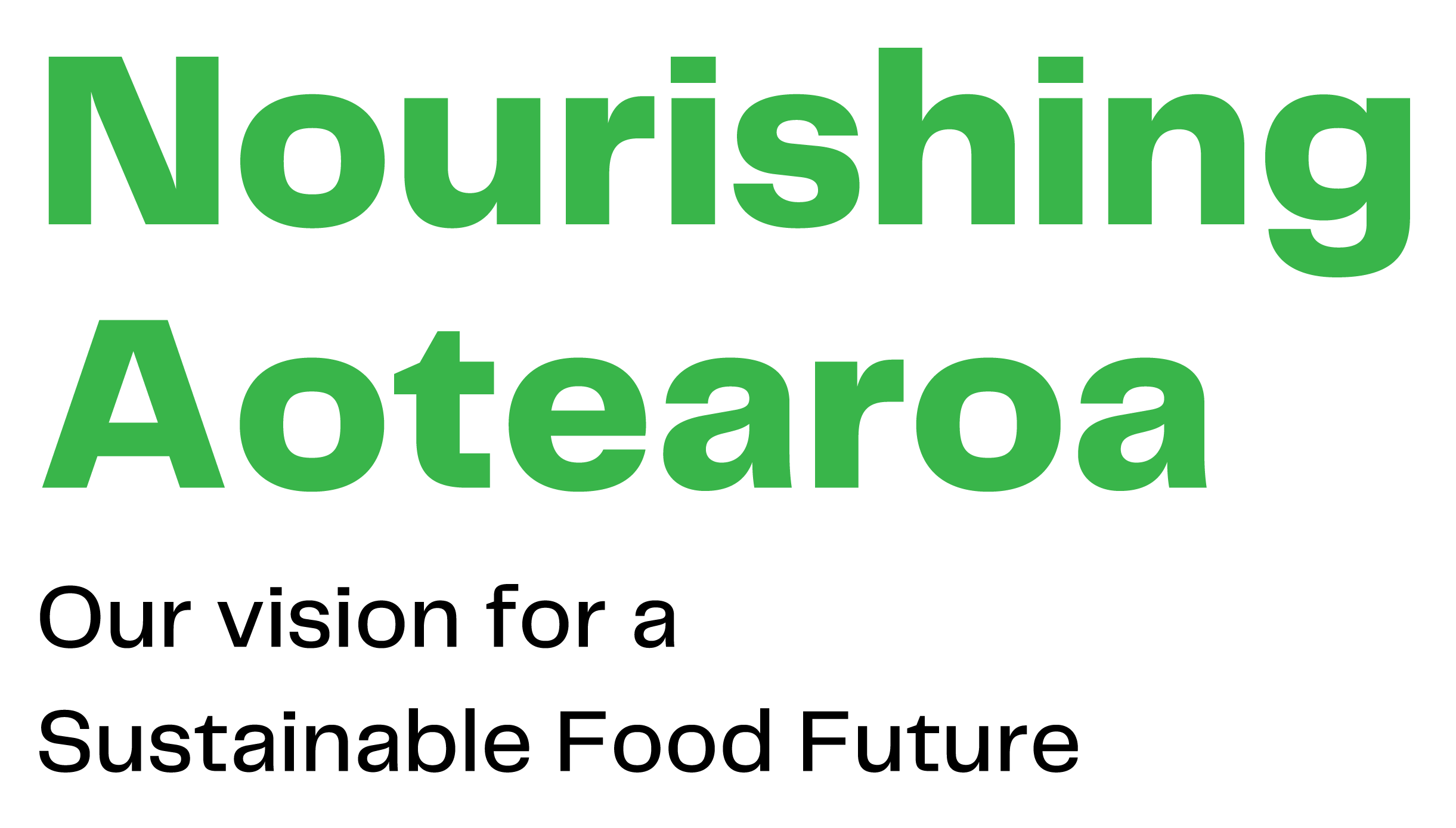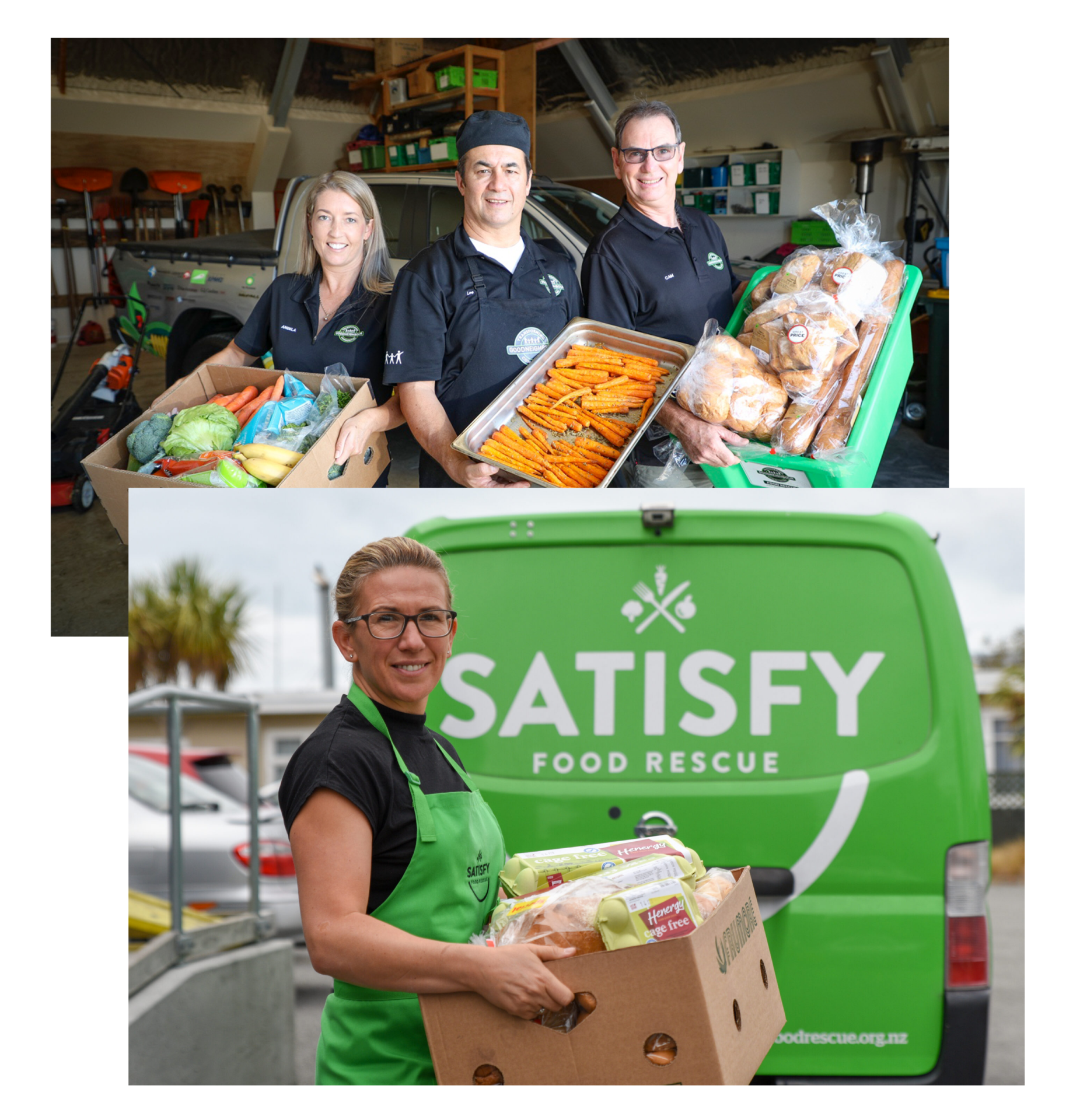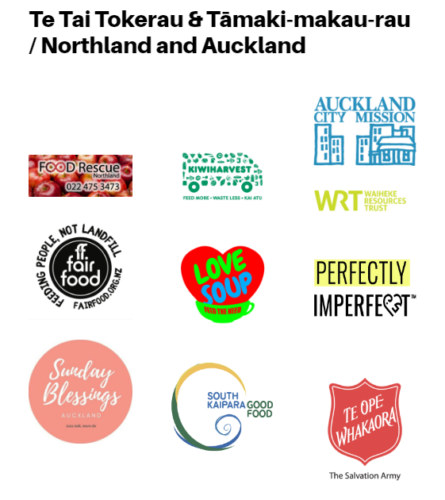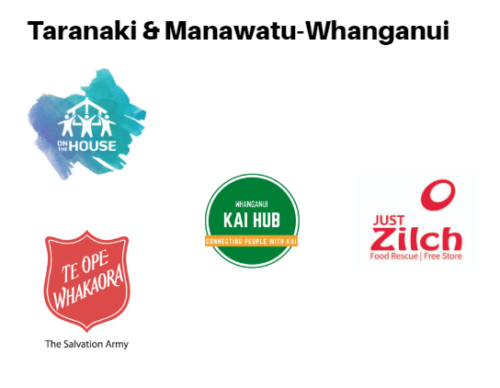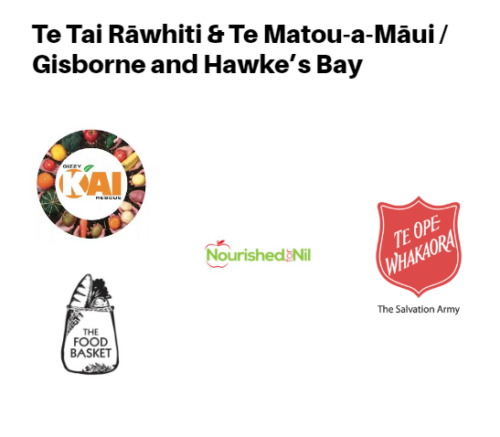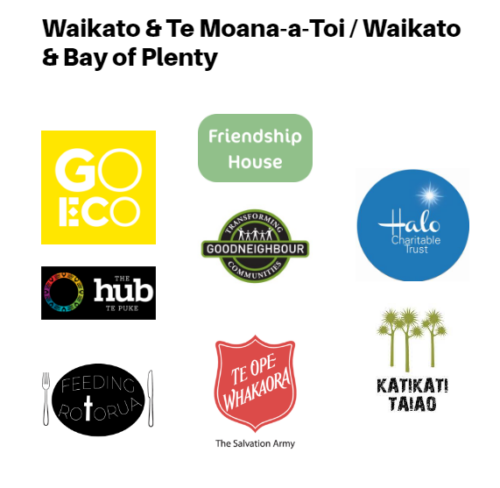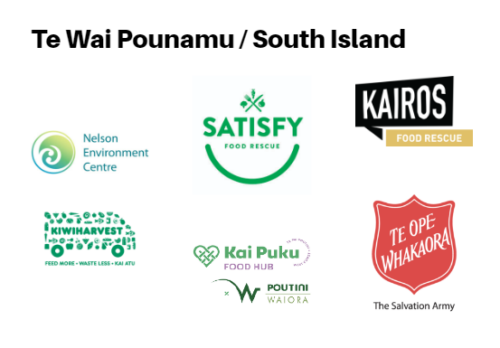The Aotearoa Food Rescue Alliance (AFRA) is a network of 33 food rescue organisations that work collaboratively to tackle two of the biggest issues facing New Zealand right now – the cost of living and climate change. Food rescue takes an environmental problem – food waste – and turns it into a social solution – food relief.
The Aotearoa Food Rescue Alliance (AFRA) is a network of 33 local, community-focused food rescue organisations operating at 109 individual sites, that work collaboratively to tackle two of the biggest issues facing New Zealand right now – the cost of living and climate change. Food rescue takes an environmental problem – food waste – and turns it into a social solution – food relief.
AFRA members make it easy for food producers, manufacturers, and retailers to reduce their waste by providing surplus food to people who need it instead of sending it to landfill. Food rescue organisations collect, sort, and safely distribute food directly to families or, more often, to over 1500 organisations such as food banks, schools, social service organisations and refuges that incorporate rescued food into the assistance they provide for their communities. Rescued food is often the only source of healthy fresh produce such as vegetables, fruit, meat and dairy in food support parcels.
Last year, AFRA members shared over 7000 tonnes of rescued kai. That’s more than 20 tonnes a day. This is the result of an incredibly successful partnership between businesses and NGOs working collaboratively to improve the wellbeing of their local communities.
Because food rescue organisations have the capacity and know-how to safely and efficiently distribute food by the hundreds of kilos a day, they are called on in times of crisis to quickly get food to their communities. We’ve seen this recently during the COVID-19 pandemic and the North Island cyclones. Having that food distribution infrastructure in place and ready to respond is absolutely vital.
In 2023, another crisis is driving demand for food relief. The cost-of-living crisis gets sharper every day and our members working at the front lines see the impact that’s having on families. We need permanent solutions to food insecurity, but we also need an immediate response. Food rescuers are the most efficient first responders. With the right resources, AFRA members are ready and able to provide emergency food relief to people struggling with the rapid rise in the cost of living.
A 2022 study led by Otago University researchers found that for every $1 invested in food rescue, at least $4.50 worth of social value is returned. That is a remarkable return on investment, and many of our groups can provide all the fresh ingredients for a meal for less than $1. The sector is strong, professional, and has the data to demonstrate the positive impact it has on communities.
Supply chain disruption means we now regularly have empty shelves in our supermarkets. Food waste is driving climate change, and the impacts are already being seen here from extreme weather. It is clear that reliance on the market alone delivers undesirable results for too many people. Twenty percent of New Zealanders struggle to put food on the table each night, while we produce enough to feed 40 million people.
The incoming Government must work with stakeholders across the food system to establish a community-led, Government enabled national food plan that balances the economic benefits of food production with the need to ensure that people in New Zealand have enough affordable, nutritious food to eat.
Currently, many Government agencies overlap with the food system, whether it’s regulations from MPI, environmental impacts from MfE or the Climate Change Commission, employment standards from MBIE, food poverty from MSD or diabetes from MOH. This fragmented approach means there is confusion about who is responsible for food strategy and decision making is siloed.
Ensuring that everyone in Aotearoa has access to affordable, nutritious food is a fundamental human right that we are failing to deliver on as a nation. No one in a country that produces such an abundance of food should be going hungry or struggling to access healthy food.
A national food plan that balances economic benefits with food security will create a more sustainable and resilient food system where everyone can access nutritious food. A more diversified food system that prioritises local food production and consumption can provide greater food security and reduce dependence on volatile global markets.
We call on all political parties to commit to facilitating a national food plan for Aotearoa, drawing on overseas examples such as Australia and Canada, that ensures the economic, social, and environmental viability of our food systems into the future.
Legislating mandatory and audited reporting on food surplus and waste by all food growers, producers, manufacturers, and retailers is a necessary step if New Zealand is to achieve the UN Sustainable Development Goal of halving food waste by 2030.
Currently, there is no standardised method for measuring and reporting food surplus and waste across the food supply chain. By mandating reporting and audits, we can establish a consistent method for tracking food waste and identifying opportunities for reducing it. This approach will allow us to set a baseline and targets, track progress, and hold businesses accountable for their role in reducing food waste.
Mandatory reporting will raise awareness about the scale of the problem and the need for action. Many businesses are unaware of the amount of food waste they generate or the impact it has on the environment and society. By measuring and reporting their food surplus, businesses will be able to confront the scale of the problem and take action to reduce their food waste.
By requiring reporting and audits, we can identify opportunities for redistributing and recovering surplus food and ensure that it is used to its full potential.
We call on all political parties to commit to mandatory and audited reporting on food surplus and waste and to legislate for this as part of the planned work to replace the Waste Minimisation Act and Litter Act.
MAKE YOUR VOICE HEARD
Your voice matters, and now is the time to make it heard! Ask your political candidates and push for the changes outlined in our Policy Platform, we have the power to shape the future of our food systems.
Together, we can demand action and hold our elected representatives accountable Let’s make a difference – join the movement today and let your voice be the catalyst for political change in our sector.
